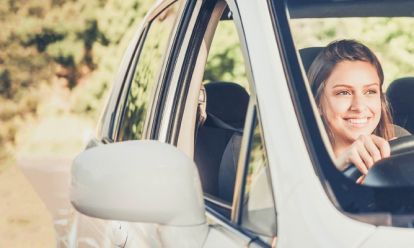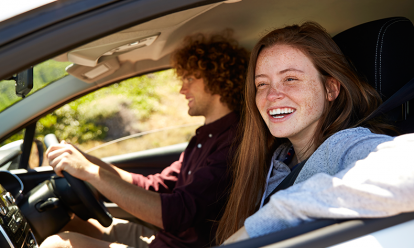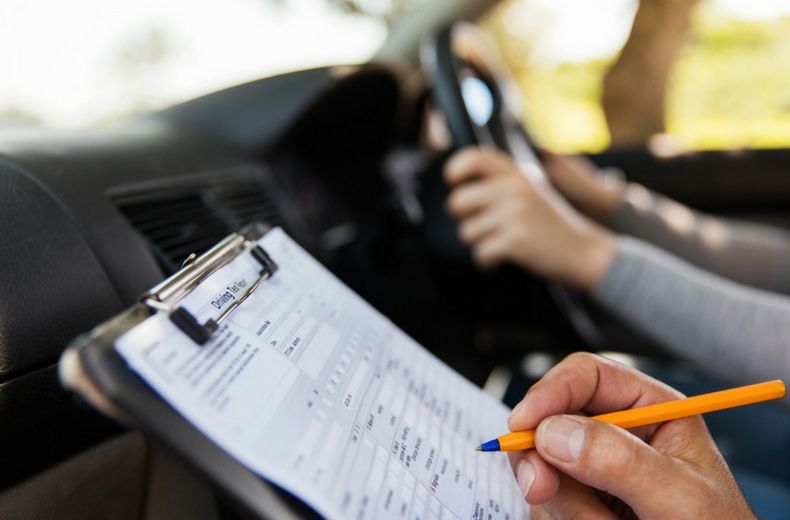1. How do I know when I'm ready to take a driving test?
The average learner needs 45 hours of driving lessons and 22 hours of practice to pass the driving test. But as everyone is different, the simplest way to know when you're ready is to ask your driving instructor - they'll tell you when you've got what it takes to pass.
2. How do I book a driving test?
Visit the Driving Standards Agency website to book your test online.
When you make your driving test booking you'll need to have:
- A valid UK provisional driving licence
- A theory test certificate number
- A valid debit or credit card for payment online or over the phone
DVSA driving test booking support
[email protected]
Telephone: 0300 200 1122
Monday to Friday, 8am to 4pm
Learner Driver Car Insurance
Only pay for the cover you need until you’ve passed your test. Get learner driver insurance so you can practice outside of your lessons.


3. What's the best way to prepare for a driving test?
Steady your nerves and prepare yourself by taking a mock test with a driving instructor acting as the examiner. Make it more realistic by using someone who isn't your normal instructor. Your driving school may provide mock tests so you can familiarise yourself with the driving test and improve your confidence.
4. What will I be asked to do during my driving test?
- An eyesight check
- ‘Show me, tell me’ vehicle safety questions
- General driving ability
- Reversing your vehicle
- Roughly twenty minutes of independent driving
- A fifth of drivers taking their test will be chosen at random and will have to rely on road signs to get to their destination
- The majority of learner drivers, however, will be asked to follow directions using a sat nav
5. What are the reversing exercises?
During the test the examiner will typically ask you to do one of the following three exercises, but it isn't unheard of for them to ask to see more:
- Parallel-park at the side of the road
- Park in a bay – either driving in and reversing out or reversing and driving out (your examiner will tell you which to do)
- Pull up on the right-hand side of the road, reverse for two car lengths and re-join the traffic
6. What safety and maintenance questions will the examiner ask?
To pass your driving test you don't need to be an expert mechanic, but you will need to have basic skills and understanding, such as how to:
- Open the bonnet
- Check the oil level
- Check the brakes
As well as opening the bonnet, you'll be asked one "show me" and one "tell me" question. For example: show me how the indicators work and tell me how you check the brakes are working before you set off. Practice the answers to possible questions with your instructor before your test.
7. What happens if I make a mistake during the driving test?
Don't panic. Minor mistakes are recorded as driving faults and you can still pass your test even if you make as many as 15 of them. However, if you make a serious or dangerous mistake during the test, that alone could be enough to fail you.
8. What happens if I pass my driving test?
Provisional licence issued after 1 March 2004?
You can be issued with a full UK driving licence automatically. The examiner will take your provisional license and give you a pass certificate. You'll receive your full license in the post within 4 weeks.If you prefer to apply for a full licence yourself, follow the instructions on the back of the pass certificate.
Provisional licence issued before 1 March 2004?
You'll need to follow the instructions on the back of the pass certificate.
9. What happens if I fail my driving test?
At the end of the test, the examiner will tell you that you've failed, and you'll be given a printed test report. Ask the examiner to explain what you did wrong to help you identify what you need to work on to pass next time. You can apply for another driving test immediately, but you'll have to wait a minimum of 10 working days before you can take one.
10. How can I keep improving my driving after I pass?
A good way to improve your skills and reduce the chances of having an accident is to get more practice behind the wheel. You could do this with a friend or family member. If you’re using your own car, you’ll need learner driver insurance in place.
Or you could enrol in an advanced driving course. You’ll learn about driving:
- In and out of town
- In different weather types
- At night
- On dual carriageways and motorways
With some advanced driving courses, you get a certificate when you pass. With this you may be able to get a cheaper car insurance quote. Once you’ve passed your test, you could be rewarded for safe driving with black box car insurance.
Superpass, a Bristol Driving School, recommend you use the internet as a great resource to help prepare for your tests. By using online maps you can view tricky junctions and view the popular routes used by the test centres.
How to practice for your driving theory test
There are a number of different ways to practice for passing your driving theory test. From sites to apps we have outlined the best resources below so you can find the right tools to suit you.
You can also brush up on your road signs knowledge on our very own road signs quiz page.
As for apps, Driving Theory Test UK is a great place to start, with all necessary learning materials, hazard perception clips and Highway Code info included. You can download it here:
- How to pass your driving test in five steps
- Did you know that we offer specialist learner driver insurance?
- How much does it cost to learn to drive?
Black Box Insurance
Want to pay less for your car insurance? Whether you’re a new driver or just looking to reduce costs, we can help.


2024 Driving Theory Test app
Want to pass your theory test first time? Download the 2024 Driving Theory Test app featuring fully licensed DVSA theory test questions and hazard perception clips.

















